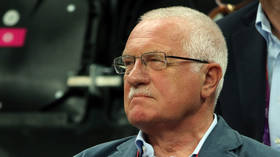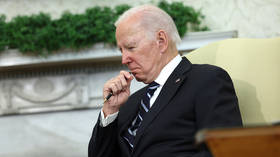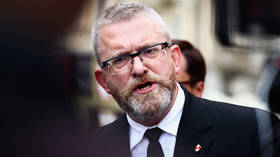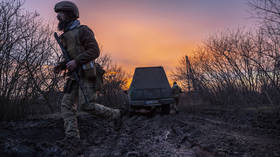Ukraine conflict will end when US says so – former Czech president

Veteran Czech politician Vaclav Klaus expects Ukraine and Russia to remain locked in armed conflict until the US chooses to stop the hostilities.
Klaus was the second president of the Czech Republic between 2003 and 2013, having previously served as prime minister and held a range of cabinet portfolios. He shared his grim view of the Ukraine conflict with the online media outlet XTV last week.
“The end of the war in Ukraine will come the moment when the falling hegemon of world politics says that the war must end,” he told host Lubos Xaver Vesely. Klaus declined to make any predictions as to when this might happen, but said he expects Ukraine and Russia “to bleed for some more time.”
The Czech politician had previously expressed concern about the so-called Thucydides’s Trap that may be guiding Washington. The term was coined by American political scientist Graham Allison to describe a tendency for a dwindling great power to go to war when its place at the top is threatened by an emerging rival.
The phrase comes from the historic wars of dominance between Athens and Sparta. Allison’s theory suggests that the US – the hegemon that is being replaced – and China are likely to find themselves at war sometime this decade.
The US appears to be trying to avoid being sidelined by complicating things and increasing chaos and instability, Klaus said during a speech in Munich last February.
“Such behavior can trigger a large-scale conflict in case some of the other main players make strategic miscalculations,” he warned, pointing to the escalation of violence in Eastern Europe and the Middle East.
“I feel very strongly that the rest of the world – of course to a different degree – is co-responsible for both these tragic wars and for the enormous suffering of millions of men, women and children on all sides of the fighting,” Klaus added.
The Czech statesman is deeply concerned for the future of Western civilization in general. Last month, he became a member of the patronage committee of an open declaration, which seeks to protect the Western way of life. Other members include Argentine President Javier Milei and Canadian academic and author Jordan Peterson.













